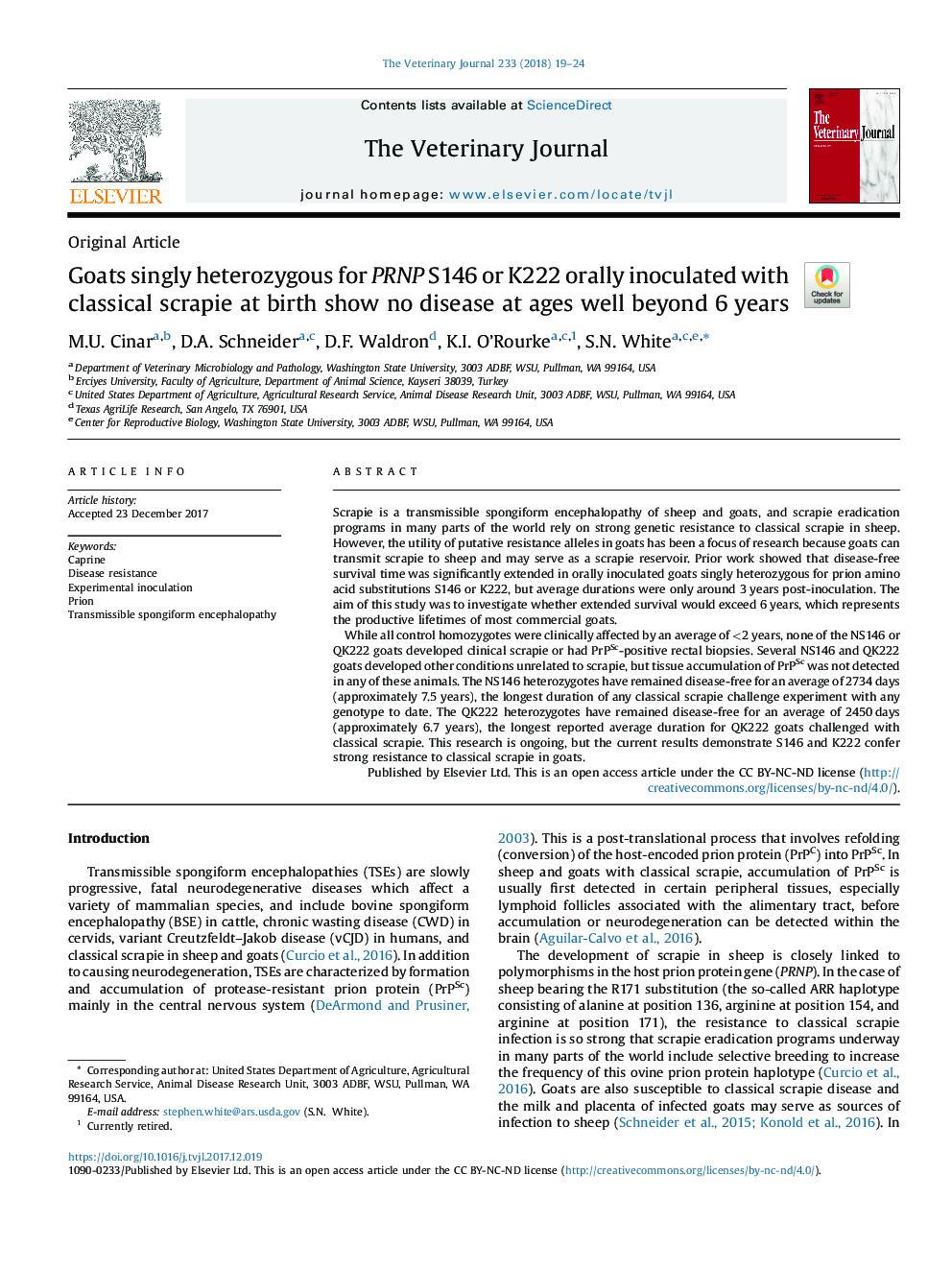| Article ID | Journal | Published Year | Pages | File Type |
|---|---|---|---|---|
| 8504912 | The Veterinary Journal | 2018 | 6 Pages |
Abstract
While all control homozygotes were clinically affected by an average of <2 years, none of the NS146 or QK222 goats developed clinical scrapie or had PrPSc-positive rectal biopsies. Several NS146 and QK222 goats developed other conditions unrelated to scrapie, but tissue accumulation of PrPSc was not detected in any of these animals. The NS146 heterozygotes have remained disease-free for an average of 2734Â days (approximately 7.5 years), the longest duration of any classical scrapie challenge experiment with any genotype to date. The QK222 heterozygotes have remained disease-free for an average of 2450Â days (approximately 6.7 years), the longest reported average duration for QK222 goats challenged with classical scrapie. This research is ongoing, but the current results demonstrate S146 and K222 confer strong resistance to classical scrapie in goats.
Keywords
Related Topics
Life Sciences
Agricultural and Biological Sciences
Animal Science and Zoology
Authors
M.U. Cinar, D.A. Schneider, D.F. Waldron, K.I. O'Rourke, S.N. White,
